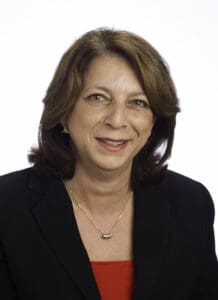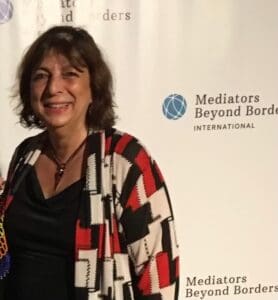Developing a Language for Restorative Justice. Member Spotlight: Deb Black
Deb Black’s background and childhood influenced the direction she chose for her career. She was born in South Africa and grew up during the period of civil war during the apartheid era with legislated exclusion and division among people. “That’s probably where my social conscience comes from” she said.
Background

She started her career in commerce, banking, and finance. There, she realized the depth of inequality inherent in society, affecting women’s or children’s rights and their ability to be included in society. Knowing that she had the ability to speak up and give a voice to people who were less empowered, she decided to act and eventually ended up in joining the work employee association or union to support addressing inequality in the workplace.
Deb moved to Australia in 1990. Deb faced a number of obstacles when arriving in Australia, such as the non-recognition of her work experience, and the political attitude and climate due to Nelson Mandela still being in prison. She decided to undertake a counselling diploma and joined the local trade union, again to address the inequality rife in the workplace. A few years later, she became the head of the trade union for South Australian and the Northern Territory, where she advocated on behalf of workers, conducted negotiations, and participated in government and non government forums to give a voice to people who were not being heard. Aside from her work, Deb also managed to get her Bachelor’s degree in Social Sciences at the University of South Australia and later a Graduate Certificate in Mediation at the same university. After this, Deb started her career in mediation and has subsequently become a restorative justice practitioner.
Current Work
Deb is currently very invested in mediation and participates in many different projects as well as sitting on a number of Mediator Panels. These include the South Australian Magistrates Court panel of pro bono and paid mediators, The South Australian Department for Education mediator panel, the South Australian Small Business Commission mediator panel, the South Australian Return to Work mediator panel and the Australian Small Business and Family Enterprise Ombudsman mediator panel. Deb also works at the Centre for Restorative Justice, where she is a conference facilitator and a trainer. With the Centre for Restorative Justice, Deb works in schools- training teachers and students and conducting conflict resolution conferences between students to students or teacher to students and vice-versa or teacher to teacher. Deb also carries out this work in communities as part of community development and within the justice system, facilitating conferences between perpetrators and victims of a crime. As she gained experience and developed her skillset, Deb moved more and more towards a method of transformative mediation with a strong focus on repairing relationships more than only focusing on the transactional issue at stake. “I think the fabulous thing about mediation is that it’s not me deciding for people, but it’s about them working it out and agreeing on what is working for them”. Deb calls herself a resolution facilitator because sometimes it’s not as simple as mediation, facilitation, or even a restorative conference, as they are all intertwined.

Currently, she is working with schools on projects around restorative justice and embedding cultural change. Part of that is helping students, teachers and school communities develop a different language, working on the language of school policies as well as procedures, and allowing them to see behavior differently. She is also working with law students around the importance of communication including non-verbal communication.
Connection to MBBI
In 2019 Deb was looking for professional development opportunities, when she read about a conference in Bali organized by MBBI. Last year, she did more professional development through the training MBBI offers about restorative justice and restorative practice. She found it very helpful and productive. She enjoyed engaging with a broader community and meeting colleagues and potential mentors because she feels like mediators can be very isolated when they work and operate alone. “I decided to become a member myself, to see how I could, in turn, give back what I received and make a contribution”.
Article by Sarah Vorms, MBBI Writer
